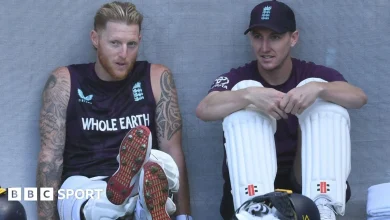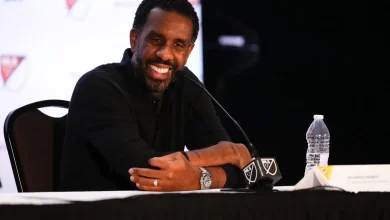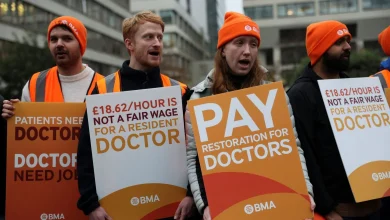A major EU leader is back in the White House to do Putin’s dirty work for him

On The Ground newsletter: Get a weekly dispatch from our international correspondents
Get a weekly dispatch from our international correspondents
Get a weekly international news dispatch
Given that the two leaders are on opposite sides of a strategic argument that is killing people and shaping the world – an issue that could undermine European cohesion in the face of Russian aggression – a meeting between Donald Trump and Hungary’s prime minister Viktor Orban should be an incendiary moment.
But the cold water of their mutual admiration for Vladimir Putin means that no fireworks can ignite in the Oval Office.
Orban has been in power for longer than the 47th president of the United States. But he has the same authoritarian instincts. Like Trump, he has sought to undermine the judiciary, while his cronies have captured much of Hungary’s media and enjoy preferential treatment in business.
His problem is that Hungary, along with Slovenia and the Czech Republic, relies heavily on fuel imports from Russia. Mostly through these countries, the European Union has spent €260bn (£230bn) on Russian fuel since Putin ordered the full-scale invasion of Ukraine in 2022.
That is €10bn more than the EU has sent in arms and cash to Kyiv over the same time period.
Trump, who has empowered Putin’s military campaign by ending the provision of US military and financial aid to Ukraine, has been able to brush off criticism of his pro-Kremlin policies because he could point to the hypocrisy of the EU’s position.
open image in gallery
Viktor Orban and Donald Trump – who are due to meet at the White House later on Friday – last met in October at a world leaders’ summit on ending the Gaza war (via Reuters)
Brussels has imposed sanctions on Russia’s fuel exports, but these exclude supplies running to Hungary, Slovenia and the Czech Republic. Hungary has a 15-year contract to purchase its gas from Russia’s Gazprom, which was signed in September 2021.
The EU and Orban do not get along. In 2018, the European parliament triggered Article 7 proceedings against Hungary, which provide for Brussels to suspend the country’s voting rights within the bloc. This unprecedented move was undertaken because of the Orban government’s judicial interference, its capture of the media, and its intimidation of civil society.
This month, the European parliament’s civil rights committee said that the democratic backsliding in Hungary now means that Budapest should face sanctions. The EU is already withholding €6.3bn in funds from Hungary while demanding that Orban loosen his stranglehold on democracy ahead of elections next year.
In addition, Putin and Trump were supposed to meet in Budapest last month for talks about a ceasefire in Ukraine. These talks, which excluded Ukraine itself, were cancelled amid widespread condemnation of Orban’s invitation of Putin, who has been indicted by the International Criminal Court for war crimes.
Yet it wasn’t long ago that Trump met Putin on US soil in Alaska, and he frequently meets with Benjamin Netanyahu, Israel’s prime minister, who is also under ICC indictment. “All diplomatic negotiations are hard, but I expect a friendly and easy negotiation,” Orban told Hungarian state news media ahead of the planned meeting with Putin.
open image in gallery
The pair met at the White House in 2019, when Trump said Orban was ‘doing great’ (Getty)
Talking to state news agency MTI on his flight to Washington this week, Orban called the topic of energy sanctions “serious” and said that the “stakes are high”, though he did not expect the talks with Trump on this topic to be difficult.
“I know the [US] president, he knows me, we know the subject; we simply have to reach an agreement,” he added.
What that “agreement” might be is unclear, and the White House kept it vague: “The American people can expect more good deals out of Prime Minister Orban’s visit spanning various industries.”
Trump has imposed sanctions on India for importing Russian oil, and has threatened to do the same to other nations. Orban will be keen to keep Hungary off Trump’s list. But he can be confident that Trump will do nothing to undermine him. Forcing Hungary to stop importing Russian fuel is not really a card that Trump will play. They agree on too much.
In December 2023, Hungary vetoed the provision of €50bn in EU aid to Ukraine – reluctantly agreeing to allow the package through three months later.
Orban has echoed Kremlin talking points on Ukraine, referring to it as “no man’s land” and suggesting that it should be seen as a “buffer zone” between Nato and Russia. He insists that EU sanctions do not work against the Kremlin, and has demanded an immediate ceasefire, saying that Ukraine cannot win.
These are views that Trump shares.
This meeting of minds in the Oval Office can only be bad for Europe, Ukraine, and the wider West. And very good for the Kremlin.





